Stone Gossard (Pearl Jam) and Mason Jennings // Painted Shield
"I've got a whole theory about bipedal movement and how swing and counting fits into songwriting."--Stone Gossard
"Using two hands activates my brain where all kinds of imagery and words and melodies flood in. It's much harder for me to get to that place creatively otherwise. It only happens when both hands are moving."--Mason Jennings
For Stone Gossard of Pearl Jam and Mason Jennings, songwriting involves whole body movement. Both use long walks to gather ideas and work through melodies. Gossard also uses running and swimming as part of his creative process because the repetitive motion of exercise allows his mind to drift. He’s also keen on how the cadence of the movement and the swinging of the limbs create a beat. “You can start to feel how swing works in terms of using different cadences and different number sequences. You can feel different swings. And the length of the bars are the number of steps,” he says. Jennings also gets ideas when he’s exercising, but for him it’s more about ensuring that both hands are moving. It’s hard to create if they’re not. “When I'm playing guitar, after ten or fifteen minutes I'll be hearing things and singing things that I know are unique melodies. It all has to do with the fact that I'm using both hands, because it also happens when I play drums."
The result of all that hokey pokey is their group Painted Shield, which also features Matt Chamberlain and Brittany Davis. Painted Shield’s self-titled debut took six years to make. Gossard and Jennings didn’t work on it all that time, of course; in fact, Gossard estimates that they sometimes went as long as a year without talking to each other. But both say that this distance, both temporal and emotional, made for a better record. According to Gossard, “That was the key to this being a fully realized record: we had time to step away.” For Jennings the distance was more metaphorical: in the beginning he was going through a painful divorce, and the songs were too raw, too scathing. With time, Jennings was able to zoom out and take a more abstract view of the subject matter. “I think I was a little too close to some of those songs and their ideas, but Stone was a big help with his distance,” says Jennings.
Read my interview with Gossard and Jennings after the video.
Do large expanses of time like we’re in now make it easier or harder to be creative?
A
SG: Having a lot of time doesn't necessarily make me more creative. As I've had more kids, the windows of opportunity for me to get creative are more narrow. Actually, knowing that I've got an hour makes it easier to create things that I get excited about. I write with a little bit more of a primary color approach. What makes something exciting to me can come pretty simply and pretty quickly if I just mess around for a bit.
MJ: It's always hardest for me to write when I'm really busy. Touring's never been a good time to write for me, but as far as this expansiveness that we're having right now, I'll fit in these little windows. There will be a couple of hours where my wife or my kids are doing something else, and that'll be the perfect time to suddenly scramble for two hours really fast and come up with something.
It's like I set my own little boundaries. I've always been like that. Growing up, I’d wait until my mom was gone, and then I'd think I have two hours, so I'd better write a song. And in the time between songs, I'll be constantly working on it in my head a little bit, so it's always on the back burner. It's little bursts and little windows, then a constant simmer.
SG: That's very true. It's always in my head. I have the hour to work on something, but then when I’m walking with the baby or walking the dog, I’m tweaking it slowly and thinking about it. It inhabits me the whole time.
Since you mentioned walking, the role of movement has been a big topic among songwriters over the past few months. Many have told me that rhythmic or repetitive activities like walking or swimming are great for creative output. Is that effective for you?
A
SG: Absolutely. I run and I swim. I've got a whole theory about bipedal movement and how swing and counting fits into it. It's hypnosis and the repetitive motions that let your mind drift. But I do think there's something about walking and running where you can count on one side of your body and then count on the other, and you can start to feel how swing works in terms of using different cadences and different number sequences. You can feel different swings. And the length of the bars are the number of steps. It's all subconscious; you don't have to analyze it in terms of the actual counting. It's like the sound of the train going into your town. All of a sudden there's a meter or a cadence, and then you can hear how your mind naturally overlays a melody. And then you can suddenly make that melody double or half as much, or you just keep playing with the puzzle pieces. I'm looking for those phrases that excite me.
When you’re stuck, do certain movements help you get unstuck or out of a rut?
A
SG: Definitely. If a song's in my head and I'm working through a part that doesn't quite work yet, or I'm trying to create a transition between two parts or just trying to simplify something that was once magical but that’s now clunky, swimming is a big help. It's full immersion, no pun intended. You're not being disturbed, and you can just concentrate on counting and then leaving space and letting that space create the phrase or help it form the structure of the song.
MJ: I've thought about this a lot because something happens when I play the guitar and I sing at the same time. It activates my brain in a way where all kinds of imagery and words and melodies flood in. It's much harder for me to get to that place creatively when I'm not moving like that. It only happens when both hands are moving.
When I'm playing guitar, after ten or fifteen minutes I'll be hearing things and singing things that I know are unique melodies. It all has to do with the fact that I'm using both hands, because it also happens when I play drums. I'll write on a guitar for an hour and then I'll hop on the drums for 15 or 20 minutes, and it definitely lets me use my body differently and get outside of myself. Like Stone was saying, it's both sides of the body working.
And walking is huge for me. I walk every day and I also swim, because sometimes things get tight. If I get stuck somewhere, the process will shut. So walking is a good way to keep it open.
As an artist, how important is it to create something every day?
A
SG: I want to create every day because it sets the day right for me. But I don't necessarily have to get everything down in order to feel creative. I don't have to record it and I don't have to write it down, but I need to feel that state. It's like Mason playing drums: just going down the basement for about 30 minutes and overlaying a pulse on the kick drum, then swinging right and left with different parts and doing something different than you than you've ever done before. Or it might be pushing a little more independence from one side of your body or another to be able to layer rhythm.
That sums up so much about what triggers me in music: you have one thing and then you flip it on its head, and then it suddenly bounces in a new way or it creates space for something else. It's about doing something and then slowly pulling the last phrase off so that there's a space. All of a sudden, it goes from sounding like a polka song to a funk song.
MJ: For sure. I need to do something new every day; it's almost as strong as the will to live for me. I had a pretty rough home life growing up. Starting in my early teens, I needed to create something every day to fight against that because it was someplace where I mattered, where I could contribute, and where I could interact with something bigger than me.
When I'm creating, it's like an infinite source. There's something spiritual about touching something gigantic like that. I'm touching it with this playful energy that's always supplying something, whether it be words or beats or music or drawings. That's very comforting. It's a pretty strong drive to know that I'm going to create something that wasn't there five minutes ago.
“A limited palette is great for me. And it goes back to almost a Sesame Street level where I’m moving pieces around on a page or playing in the sandbox and trying to be as childlike as I can.”
How much writing do you two do outside of songwriting?
A
SG: Poetry for sure. Lyric writing at different stages. I have books of some good and some terrible poetry that I've worked on over the years. But for me, it's just about getting into a state of mind and then being playful with that feeling and trying to not be self conscious about it.
I feel much more comfortable on a musical instrument in general, but my theory is the same: a limited palette is great for me. And it goes back to almost a Sesame Street level where I’m moving pieces around on a page or playing in the sandbox and trying to be as childlike as I can.
I love the simplicity of non-genius level creatives who play with really simple building blocks. That simplicity takes us back to something like Iggy Pop's Funhouse record, which is about combining simple ideas into something amazing that feels liberating and free.
MJ: No, I really don't. I have hardly any of my lyrics written down. Stone will ask me if I have any lyrics for the song. And I'm like, Oh shit. Then I look at them and think, Is that what I said?
I'm trying to do a little more of that lately; in the quarantine I've been challenging myself to write a little something here and there every day. Growing up, I would write something, look at it, then throw it away because I was just so critical.
It's hard to describe. There's something beautiful about songwriting because to me it's almost invisible. I can be very hard on myself. I look down at the words and I get so mean, but my inner critic finds it difficult to do that if the lyrics aren’t there. So I just record it and keep rewinding it over and over until it's stuck. I don't write down the words.
SG: You don't write down your lyrics? So you're just recording spontaneously, and flowing with whatever's coming to you? And that’s the version you go with. You don't write it down to lock it away?
MJ: No. I have this theory that if it's good, you're going to remember it. I mean, I hear it probably 100 times. Sometimes these songs get pretty long, and then I'll think, It better be good because if I can't remember it, who else is gonna want to remember it?
SG: Oh my God. That's amazing.
Let’s talk about the writing ritual. Do either of you have one?
A
SG: If if I have a ritual, it's all been thrown out the window. I've got a house full of kids, so rituals are very hard to come by right now. But going for a long walk in the morning with the dog is great. We have a place down in Cannon Beach, Oregon, and that's an incredible place to walk on the beach. And when you walk on that giant expanse of sand with huge waves crashing, with the horizon and the wide openness of it, which you don't get so much in Seattle, it's fantastic. I like those environments where you can see for ages. So ideally, I'd take a long walk, then have a few hours where everybody's gone and I could just let it all out.
MJ: I write best in the afternoon; between afternoon and five is when something pops out. I don't usually write at night or in the morning. It's more about finding spaces when there's time. There's usually windows in the afternoon where somebody is doing something, and I'll jump on the guitar.
It sounds like I'm a slacker, but everything comes to me when I'm not conscious about it. It's about tricking myself into thinking that I'm not actually writing something. I find that I never realize that I'm writing a song until I start singing it and think I've never heard this before.
I'm huge into being around nature. I live on a lake, and my house is all windows looking out across this giant expanse. That's a hugely helpful thing for me. As big as I can see outside, that's what I imagine my creative process to be too.
And the important part of the ritual: pen and paper or computer for your lyrics?
A
SG: I always love pen and paper. But now I tend to use the Notes app on my iPhone because so many ideas come to me on walks.
MJ: Oh, I love those Micron 05 black pens.
How important is it to create temporal distance from a project when you’re working on it? Can stepping away make it better?
A
SG: The distance in this record came from the fact that we made it over a period of six years. We picked up and put down the songs for this record hundreds of times. We really worked the songs over and kind of tricked them into coming together. That was the key to this being a fully realized record: we had time to step away. I mean, there might've been a year where we didn't talk to each other during the last six years. But that didn't seem weird to either of us.
MJ: We ran into that a couple of times on this record lyrically because I was going through am ugly divorce and was writing cathartically. I’d write whatever I was feeling. And then Stone would say, "You might be too close to this. Can you visualize out 10 years?” Our song "Ten Years From Now" was originally a pretty scathing song. But on the final version I zoomed out a little bit.
With "Painted Shield" I was in some pretty heavy therapy, and Stone suggested that we make it more abstract so that it was more universal. I think I was a little too close to some of those songs and their ideas, but Stone was a big help with his distance.
Last question: who are you reading now?
A
SG: I love to read, and the last book I read was the Frederick Douglass biography by David Blight. It was amazing. There was so much that I didn't know about his life. What an insanely courageous person. I'm in awe of Douglass’s ability to move people with stories and oration and with how much he was influenced by the old Testament and Shakespeare and all these classic ideas.
The book I'm reading now is called What Are You Going Through by Sigrid Nunez. My favorite bookstore here in Seattle is called Elliott Bay, and the new fiction is all out on this big table, like 30 or so books that have just come in. I'll find an author there like Murakami or Martin Amis, then go deep down the rabbit hole.
MJ: I love to read, and the last book I read was The Vanishing Half by Brit Bennett. I loved it. I also just finished the Springsteen autobiography, and that was pretty great. I dropped out of high school but then forced myself to go to the library and read every book that I possibly could in the classics section. So books have always been a big part of my life.


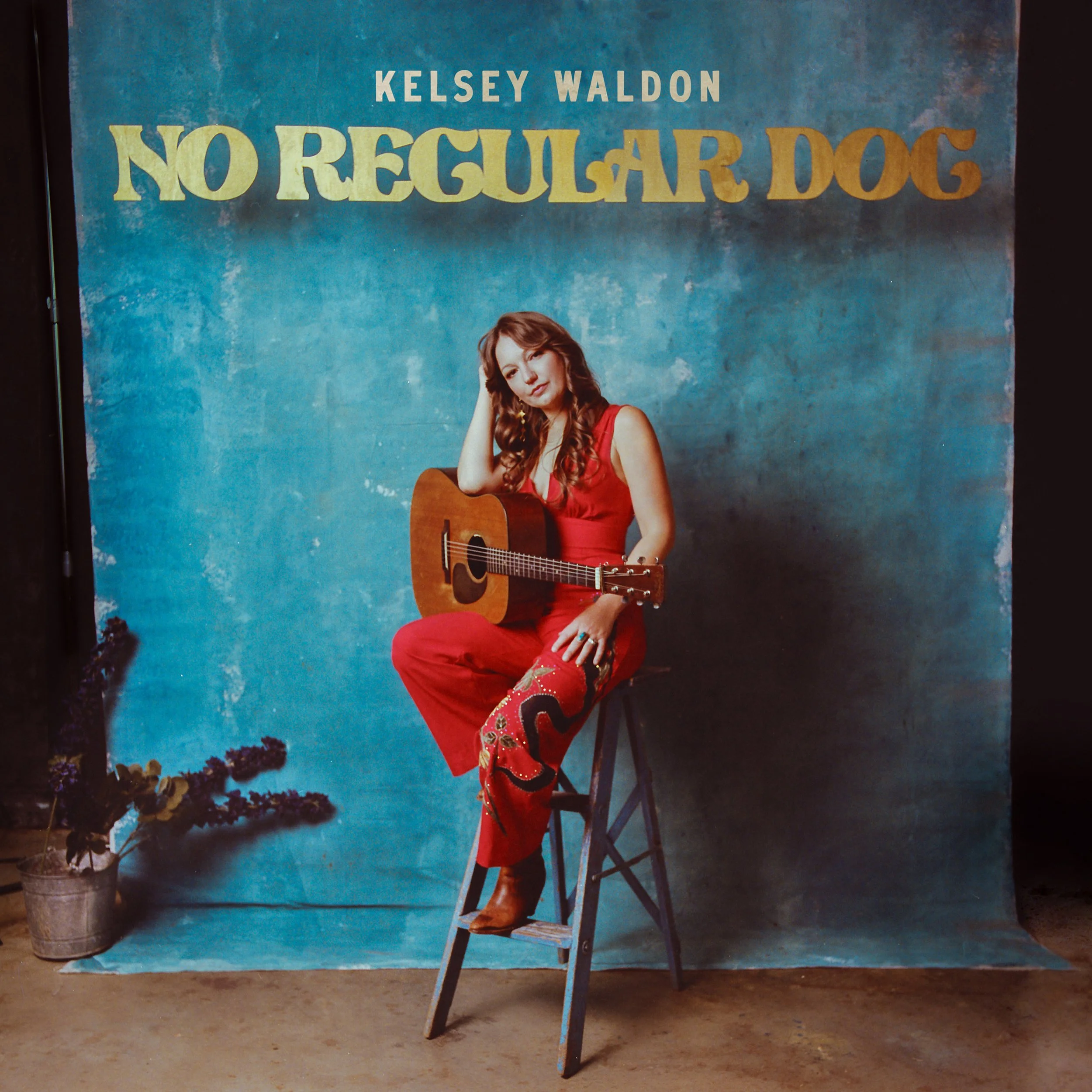
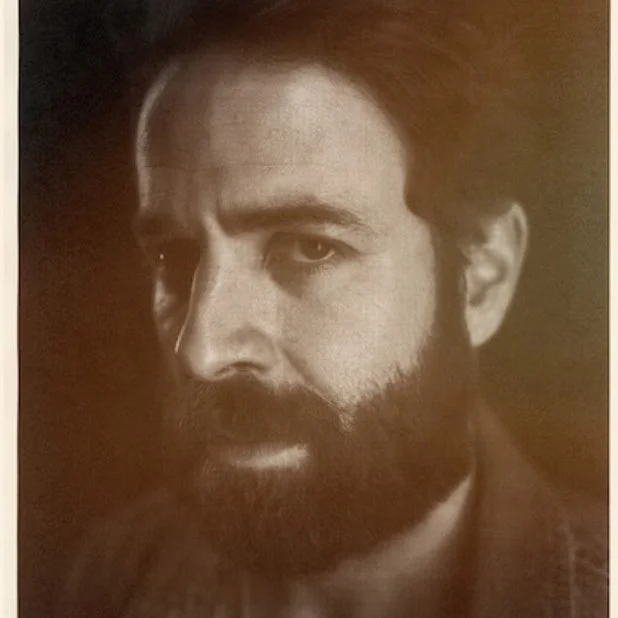
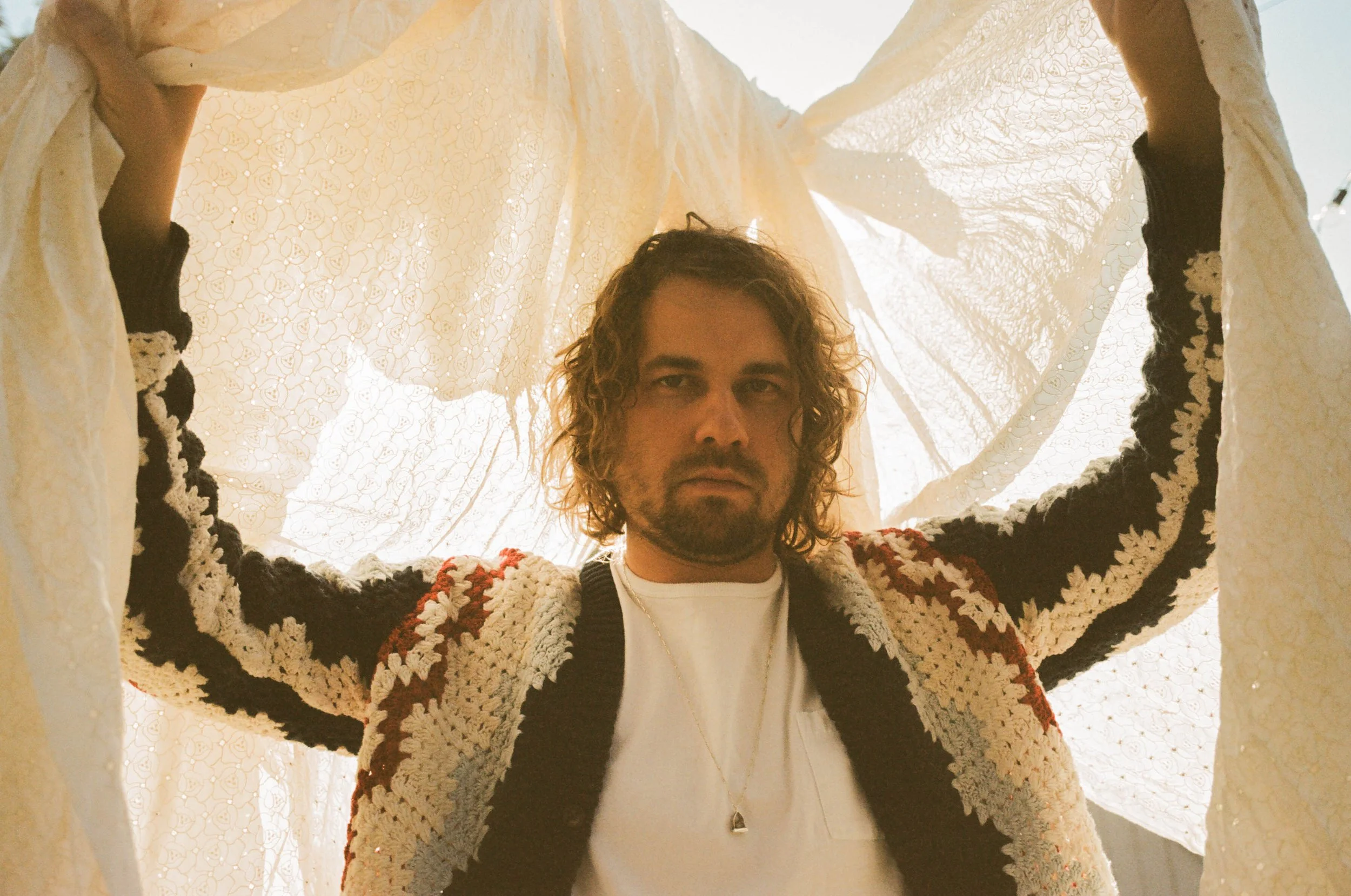
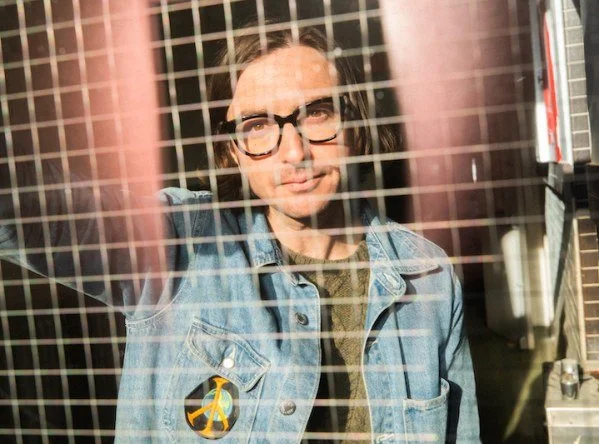
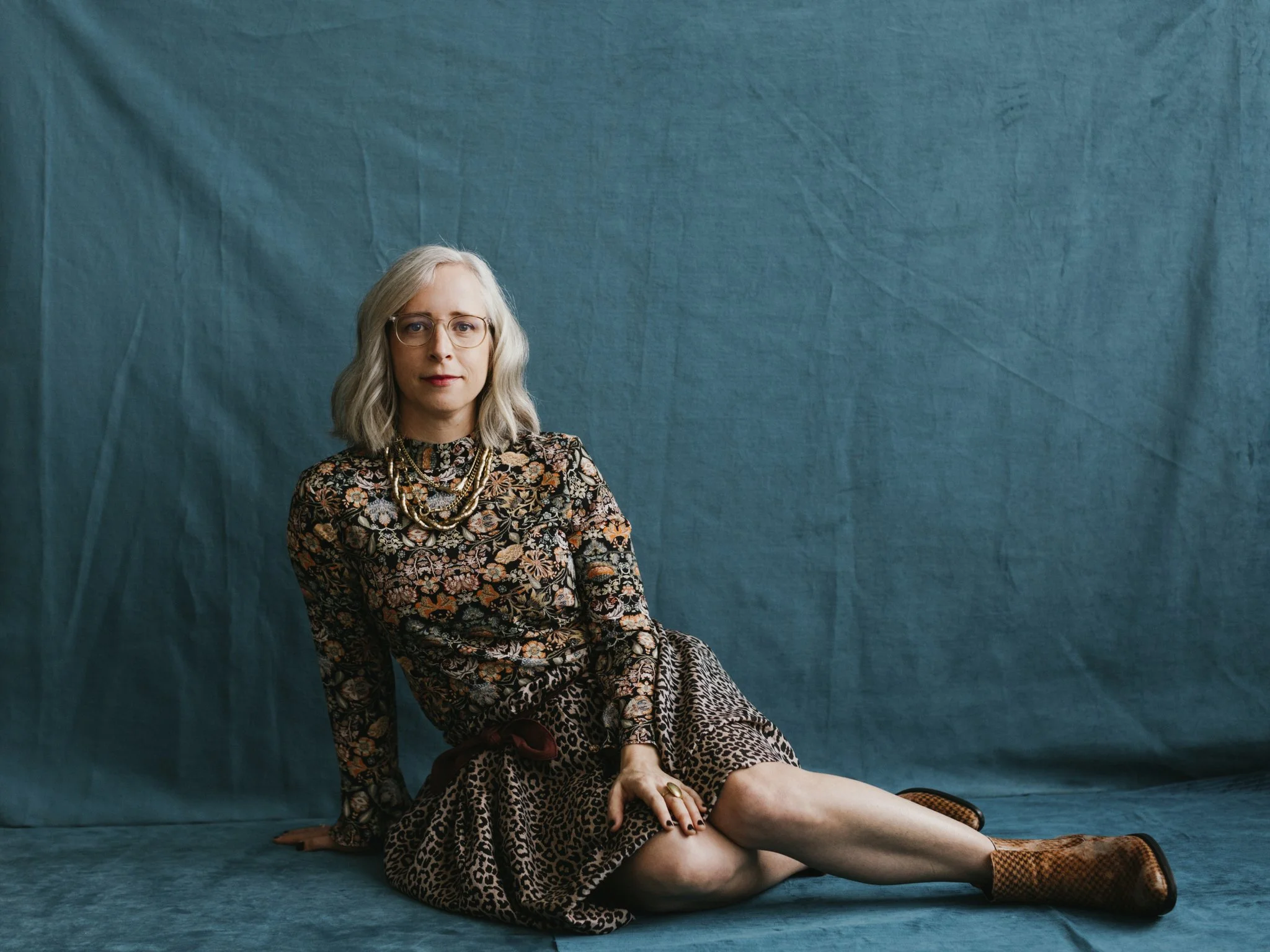
Matt Nathanson’s latest album Boston Accent was produced by Butch Walker. in this episode, they dissect why their creative relationship in the studio was so successful.